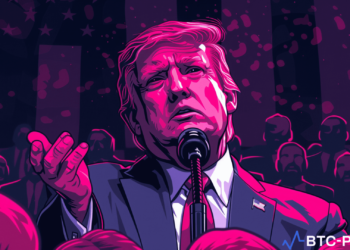South Africa’s Leap Towards Financial Equality Using Blockchain
South African authorities have taken a significant step forward in bridging the financial divide by promoting the adoption of digital payments among marginalized groups. In a recent treasury document released on February 21, the nation has set its sights on stablecoins and blockchain technology as pivotal tools for improving the lives of those on the fringes of the financial system.
Promoting Digital Payments Through Policy Innovation
The treasury’s announcement of an impending policy shift towards stablecoins outlines a strategic plan to foster digital payments as a key initiative. This move is not only about embracing modern financial technologies but also about creating a more inclusive economic environment. By focusing on stablecoins, South Africa is positioning itself at the forefront of financial innovation, aiming to provide secure and stable digital payment options to its citizens.
Exploring the Impact of Blockchain on Financial Markets
In an ambitious effort to understand and harness the potential of blockchain technology, South African officials have established a working group dedicated to examining blockchain-based tokenization and its effects on domestic financial markets. Slated to publish its findings by December 2024, this group will delve into the policy and regulatory implications of embracing blockchain-based financial market infrastructures. This initiative underscores the country’s commitment to not only adopt cutting-edge technologies but also to meticulously consider their broader economic impacts.
Regulatory Steps Forward
The recognition of crypto assets as financial products in October 2022 marked a pivotal moment for South Africa’s legal and regulatory framework. This move by the Financial Services Authority of South Africa (FSCA) signified a formal acknowledgment of the value represented by digital currencies. Further regulatory developments came in July 2023, when it was announced that cryptocurrency exchanges operating in South Africa would require a license, with the FSCA warning of enforcement actions against non-compliant entities. This regulatory stance contrasts with actions taken by neighboring Nigeria, which recently banned major cryptocurrency exchanges.
South Africa vs. Nigeria: Divergent Paths in Cryptocurrency Regulation
While South Africa advances towards integrating cryptocurrencies into its financial system, Nigeria has taken a more cautious stance. The recent ban on major cryptocurrency exchanges like Binance, OctaFX, and Coinbase highlights the varying approaches to digital currencies across the African continent. Binance’s response to limit local users’ access to its P2P platform following the Nigerian government’s directive underscores the complex interplay between national policies, the global cryptocurrency market, and the protection of local economies.
Conclusion
South Africa’s strategic embrace of stablecoins and blockchain technology represents a bold step towards financial inclusion and equality. By fostering an environment that promotes digital payments and carefully considering the regulatory implications of such technologies, South Africa is paving the way for a more inclusive financial future.










